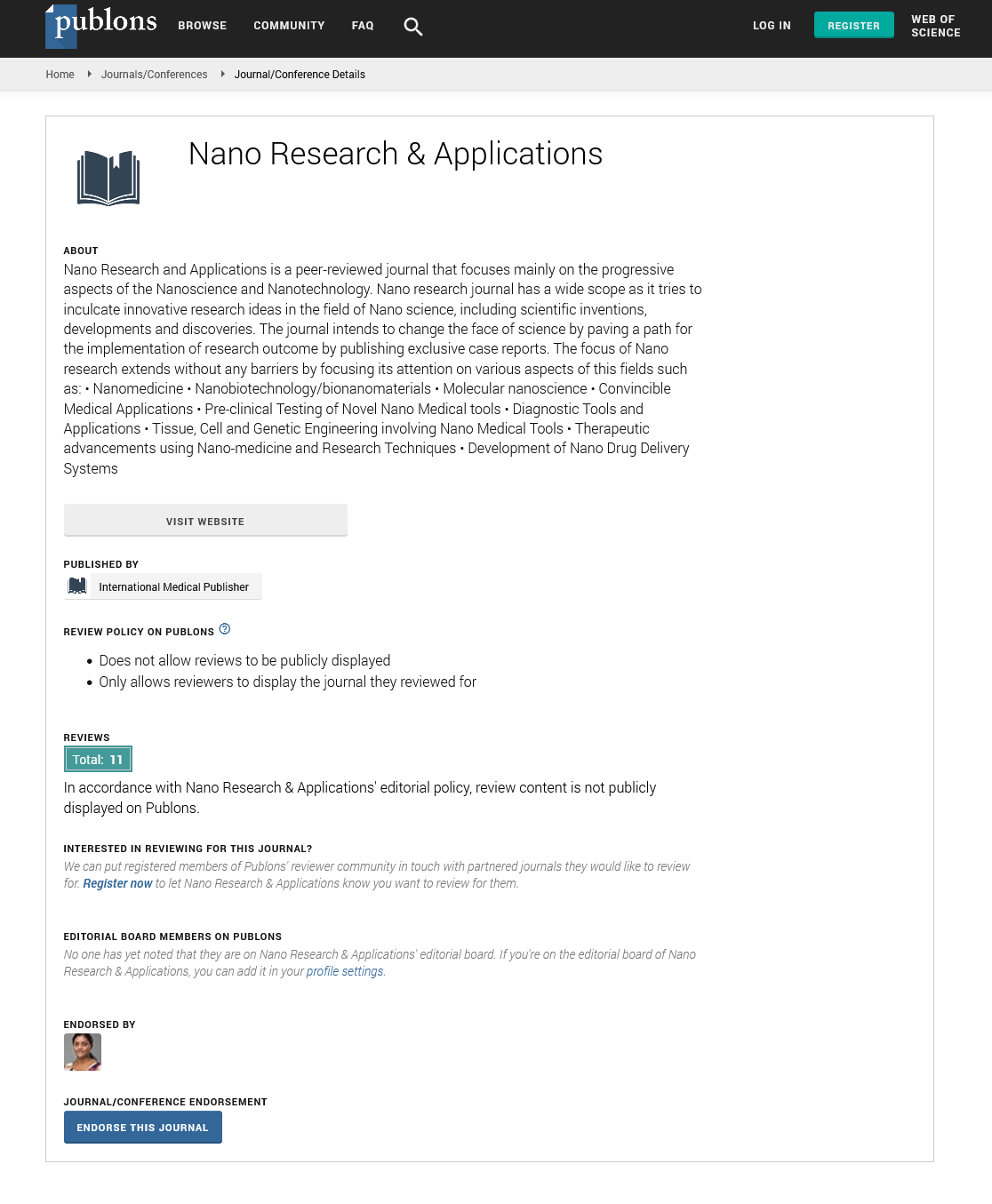ISSN : 2471-9838
Nano Research & Applications
Chitosan/gellan gum/Îò-cyclodextrin/curcumin hydrogel as a support matrix for enhancing adhesion and proliferation of human adipose-derived stem cells
17th Edition of International Conference on Emerging Trends in Materials Science and Nanotechnology
April 26-27, 2018 Rome, Italy
Alessandro F Martins, Ariel C de Oliveira, Bruno H Vilsinski and Matt J Kipper
Federal University of Technology, Brazil Colorado State University, USA
Posters & Accepted Abstracts: Nano Res Appl
DOI: 10.21767/2471-9838-C1-009
Abstract
Chitosan (CS) is recognized for its excellent performance to interact with polyanionic macromolecules (such as gellan gum, GG) to enable the production of physical hydrogels (polyelectrolyte complexes; PECs). CS was associated with GG, �?²-cyclodextrin (�?²-CD) and curcumin (CU) to create PECs for wound healing purpose. CS/GG/�?²-CD/CU hydrogels containing large contents of pores were produced by the first time, controlling the pHs of the CS solutions and CS:GG/�?²-CD/CU weight ratios. Stable PECs matrices were created using a suitable level of CU (23 mg) at GG/�?²-CD solutions in a 2/1 rate at pH 6.0. The CU could organize the polymeric chains in the hydrogel networks, allowing the formation of materials with well-defined pore structures. After neutralization step, the hydrogels loaded with CU displayed self-assembling behaviors. SEM images of the CS/GG/�?²-CD/CU hydrogels before and after neutralization (performed in ultrapure water) confirmed the reorganization of polymer chains. The self assembling capacity was also confirmed by thermal analysis. Throughout the neutralization step, the CU was not released from the PEC matrix. So, the �?²-CD/CU complex can stabilize the PECs arrangements, permitting the development of a stable support matrix (scaffold) to enhance the adhesion and proliferation of human adipose-derived stem cells (ADSC cells). Scaffolds used for wound healing and tissue engineering purposes should similarly promote cell adhesion and provide mechanical and chemical cues that can guide cell shape, cell migration, and other relevant cellular activities. In this facet, CS/GG/�?²-CD/CU hydrogel significantly promotes ADSC attachment, adhesion, and proliferation. The number of adhered cells on the PEC surface significantly increased throughout seven days (p<0.05). Fluorescence and SEM images confirmed these statements. affmmartins@gmail.com
Google Scholar citation report
Citations : 387
Nano Research & Applications received 387 citations as per Google Scholar report
Nano Research & Applications peer review process verified at publons
Abstracted/Indexed in
- Google Scholar
- China National Knowledge Infrastructure (CNKI)
- Directory of Research Journal Indexing (DRJI)
- WorldCat
- Publons
- Secret Search Engine Labs
- Euro Pub
Open Access Journals
- Aquaculture & Veterinary Science
- Chemistry & Chemical Sciences
- Clinical Sciences
- Engineering
- General Science
- Genetics & Molecular Biology
- Health Care & Nursing
- Immunology & Microbiology
- Materials Science
- Mathematics & Physics
- Medical Sciences
- Neurology & Psychiatry
- Oncology & Cancer Science
- Pharmaceutical Sciences
